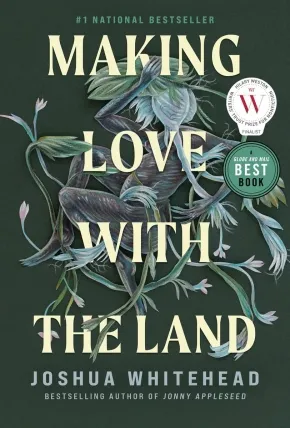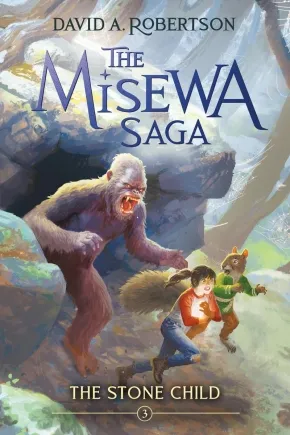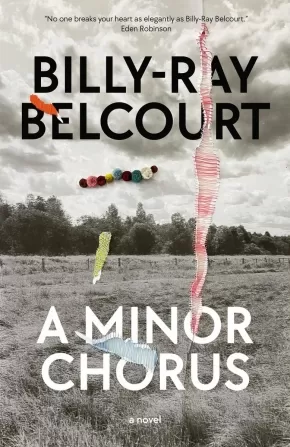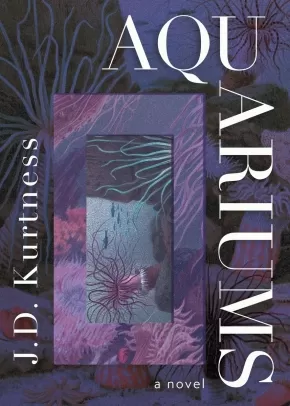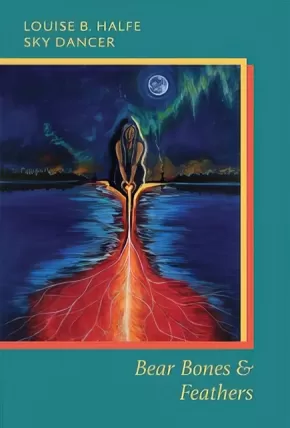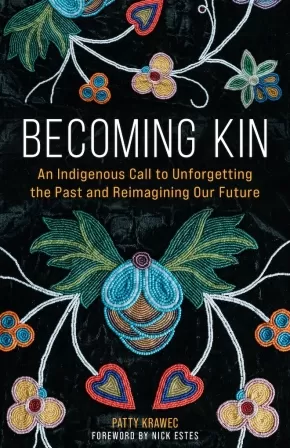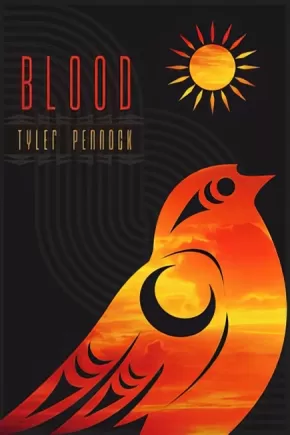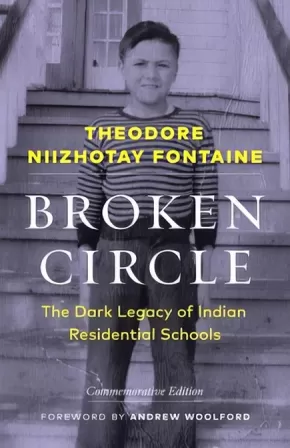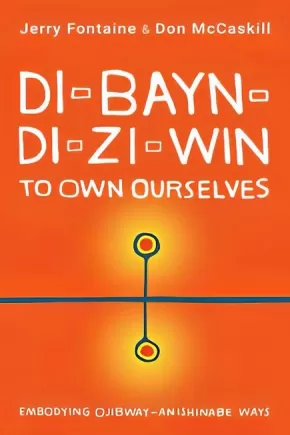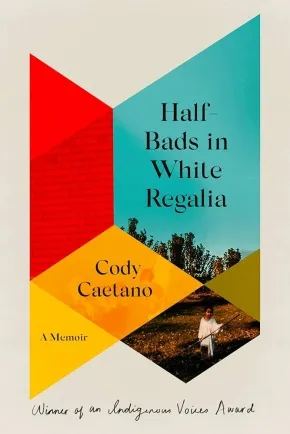2023 - 2024 Selections
Synopsis:
The boundary- and genre-bending non-fiction collection from the Giller-longlisted, GG-shortlisted and Canada Reads– winning author of Jonny Appleseed.
“The land and its elements are my aunties calling me home, into that centre point which is a nowhere, by which I mean a place that English has no words for, is an everywhere, is a bingo hall, is a fourth plane, is an ocean.”
Making Love with the Land is a startling, challenging, uncompromising look at what it means to live as an Indigenous person “in the rupture” between identities. In these ten unique, heart-piercing non-fiction pieces, award-winning writer Joshua Whitehead illuminates the complex moment we’re living through now, in which Indigenous and non-Indigenous peoples are navigating new and old ideas about “the land.” He asks: What is our relationship and responsibility towards it? And how has the land shaped ideas, histories, words, our very bodies?
Intellectually thrilling and emotionally captivating, this book is a love song for the world—and for the library of stories to be found where body meets land, waiting to be unearthed and summoned into word.
Reviews
"[Making Love With the Land] defies categorization . . . mov[ing] between genres and languages in a series of essays that open up a whole new window on the meaning of Canadian literature.” —Maclean’s
“Joshua Whitehead is one of those rare writers: he can turn his hand to any form and make it his own. . . . Making Love with the Land is a series of essays with a fluidity, as you might expect from Whitehead, between form and subject.” —Toronto Star
“Defiantly artful . . . alert to so much of the beauty and theterror of the world . . . While reading, I was entirely overcomewith gratitude . . . A truly dazzling feat of heart, analysis,and sentence-making.” —Billy-Ray Belcourt, author of A History of My Brief Body
“In this essay collection, Joshua Whitehead pushes at the possibilities of form, and the results are consistently a mix of the revelatory and the sublime. A chiaroscuro of self-questioning directed inward as a way to go outward—affectionate, resolute, playful, and wise. Brilliant lessons learned are on offer here, but more as an invitation to re-experience what you might not know you know.” —Alexander Chee, author of How to Write an Autobiographical Novel: Essays
“In his latest “wonderwork,” Whitehead continues his signature and significant mission to undo colonial notions of genre, pushing the boundaries of memoir and cultural commentary into a wholly new, otherworldly terrain. Here, he makes love with body, kin, queerness, and music, demonstrating how making love isn’t just an act of pleasure, but also one of grief, pain and sometimes even solitude. A voice to listen to, learn from, cherish.” —Vivek Shraya, Author of People Change and I’m Afraid of Men
Additional Information
240 pages | 5.19" x 7.98" | Paperback
Synopsis:
In this complex and emotionally resonant novel about a Métis girl living on the Canadian prairies, debut author Jen Ferguson serves up a powerful story about rage, secrets, and all the spectrums that make up a person—and the sweetness that can still live alongside the bitterest truth.
Lou has enough confusion in front of her this summer. She’ll be working in her family’s ice-cream shack with her newly ex-boyfriend—whose kisses never made her feel desire, only discomfort—and her former best friend, King, who is back in their Canadian prairie town after disappearing three years ago without a word.
But when she gets a letter from her biological father—a man she hoped would stay behind bars for the rest of his life—Lou immediately knows that she cannot meet him, no matter how much he insists.
While King’s friendship makes Lou feel safer and warmer than she would have thought possible, when her family’s business comes under threat, she soon realizes that she can’t ignore her father forever.
Reviews
"Debut author Ferguson, who is Métis and White, touches on intergenerational family suffering at the hands of the state, mental health, substance abuse, racism, sexual harassment and assault, and missing and murdered Indigenous women—all with nuance and care. Heart-rending and healing; a winning blend that will leave readers satisfied."— Kirkus Reviews (starred review)
"Young adult readers can relate to the struggles Lou is facing as she navigates her transition from high school to college, and also use them as a conversation starter about race, identity, sexuality, dating, and friendship." — Horn Book (starred review)
"In a layered first-person portrayal of a young Indigenous woman navigating the edge of adulthood, Ferguson (who is Métis and white) tackles necessary issues—of identity and sexuality alongside colonialism, generational trauma, racism, physical and sexual assault, and substance reliance—through well-wrought, complicated characterizations and prose that sings with poetry." — Publishers Weekly (starred review)
"Ferguson’s frank and powerful debut opens readers’ eyes to the multiplicity of daily traumas faced by people of color, especially Indigenous women and girls. Ferguson, herself Michif/Métis and white, boldly writes on many challenging topics, including racism, physical violence, sexual identity, sexual assault, and teen alcohol use. Lou is complex, smart, and honest, and a narrator readers will trust, love, and learn from as she works to repair friendships and gain security for her treasured family." — Booklist (starred review)
Educator Information
Recommended for ages 13+
This book is part of the Heartdrum imprint centers a wide range of intertribal voices, visions, and stories while welcoming all young readers, with an emphasis on the present and future of Indian Country and on the strength of young Native heroes. In partnership with We Need Diverse Books.
Content Warnings for The Summer of Bitter and Sweet: discussion of sexual assault, instances of racism, instances of physical assault, instances of intimate partner abuse, discussions of drug use, discussions of under-aged alcohol use, instances of arson.
Additional Information
384 pages | 5.31" x 8.00" | Paperback
Synopsis:
It's a race against time to save Eli, in this third book in the award-winning, Narnia-inspired Indigenous middle-grade fantasy series.
After discovering a near-lifeless Eli at the base of the Great Tree, Morgan knows she doesn't have much time to save him. And it will mean asking for help — from friends old and new. Racing against the clock, and with Arik and Emily at her side, Morgan sets off to follow the trail away from the Great Tree to find Eli's soul before it's too late. As they journey deep into the northern woods, a place they've been warned never to enter, they face new challenges and life-threatening attacks from strange and horrifying creatures. But a surprise ally comes to their aid, and Morgan finds the strength to focus on what's most important: saving her brother's life.
Reviews
"Girl power is front and center in the latest Misewa adventure . . . there's a lot of urgencies, a lot of action, a lot of emotion as events include satisfying reunions and heartbreaking loss." —Common Sense Media
"As readers, we were able to learn a lot about Cree culture in a way that's not achievable through textbooks . . . these books would be a great addition to any classroom library." —The Suburban
Educator & Series Information
Recommended for ages 10+
This is Book 3 in the Misewa Saga. Narnia meets traditional Indigenous stories of the sky and constellations in this epic middle-grade fantasy series from award-winning author David Robertson.
Additional Information
256 pages | 5.50" x 8.19" | Paperback
Synopsis:
No one knows how a suit of samurai armour ended up in the Fort Smith museum. When a mysterious stranger turns up to claim it, Sonny, a young Tłı̨chǫ Dene boy, is eager to help.
Shinobu has travelled to Fort Smith, NWT, to reclaim his grandfather’s samurai sword and armour. But when he discovers that the sword was lost in a poker game, he must confront the man known as Benny the Bank. Along the way, Shinobu must rely on unlikely heroes—Sonny, his grandmother, and a visitor from the spirit world. Together, they face Benny and his men, including the giant they call Flinch.
Will Shinobu be able to regain the lost sword and, with it, his family’s honour? Can Sonny and his grandmother help Shinobu while keeping the peace in their community?
Now in full colour, this new edition includes additional background information and cultural context. Learn about the real-life inspiration behind the story and the intersections between Indigenous and Japanese Canadian experiences during the Second World War.
Educator & Series Information
This work is part of the Debwe Series, which is created in the spirit of the Anishinaabe concept debwe (to speak the truth), The Debwe Series is a collection of exceptional Indigenous writings from across Canada.
This book is part of the The Spirit of Denendeh series.
The publisher recommends this title for ages 15 to 18.
Additional Information
56 pages | 6.50" x 10.00" | 2nd Edition | Paperback
Synopsis:
A Little Plains Cree Book for Children contains useful noun categories, phrases, and some basic rules for the Plains Cree language. Following the themes of the Saskatchewan Curriculum Guide for Kindergarten to Grade 12 on Aboriginal Languages, the content focuses on terms familiar to the First Nations Cree people of Saskatchewan. This book should also be supplemented by total physical response (TPR) methods, in addition to teaching materials such as songs, games, and flash cards. Our hope is to encourage a basic understanding of the language so that learners are able to converse with Plains Cree speakers. The best path to fluency in the Plains Cree language is immersion, but learning one word at a time is a good place to start!
Educator Information
Recommended for ages 5+
A teaching guide can be found here: nēhiyawēwin awāsi-masinahikanis: A Little Plains Cree Book for Children—Teaching Guide
Find a colouring book here: A Little Plains Cree Colouring Book: Plains Cree People
Additional Information
96 pages | 8.50" x 11.00" | Paperback
Synopsis:
An urgent first novel about breaching the prisons we live inside from one of Canada’s most daring literary talents.
An unnamed narrator abandons his unfinished thesis and returns to northern Alberta in search of what eludes him: the shape of the novel he yearns to write, an autobiography of his rural hometown, the answers to existential questions about family, love, and happiness.
What ensues is a series of conversations, connections, and disconnections that reveals the texture of life in a town literature has left unexplored, where the friction between possibility and constraint provides an insistent background score.
Whether he’s meeting with an auntie distraught over the imprisonment of her grandson, engaging in rez gossip with his cousin at a pow wow, or lingering in bed with a married man after a hotel room hookup, the narrator makes space for those in his orbit to divulge their private joys and miseries, testing the theory that storytelling can make us feel less lonely.
Populated by characters as alive and vast as the boreal forest, and culminating in a breathtaking crescendo, A Minor Chorus is a novel about how deeply entangled the sayable and unsayable can become—and about how ordinary life, when pressed, can produce hauntingly beautiful music.
Reviews
"No one breaks your heart as elegantly as Billy-Ray Belcourt. Innovative, intimate, and meticulous, A Minor Chorus is a thoughtful riot of intersections and juxtapositions, a congregation of keenly observed laments gently vivisecting the small, Northern Alberta community at its core."—Eden Robinson, author of Son of a Trickster
"The literary child of Rachel Cusk’s Outline trilogy and James Baldwin’s Giovanni’s Room, this novel builds on both, and is yet still something so new. It has the guts to centre Indigenous queer life as worthy of serious intellectual and artistic inquiry—which, of course, it always has been. We will be reading and re-reading and learning from A Minor Chorus for decades to come."—Alicia Elliott, author of A Mind Spread Out on the Ground
"An absolutely dazzling confluence of big ideas and raw emotions, told in Billy-Ray Belcourt’s singular poetic voice. A Minor Chorus is about loving, questioning, and fighting for your life, and it’s as compelling a debut novel as I’ve read in years."—Jami Attenberg, author of I Came All This Way to Meet You
"A truly exceptional novel about how the disregarded sometimes live the most remarkable lives, and how storytelling will redeem us somehow, make us less lonely. A Minor Chorus is like a song that’s over too soon; I want to play it on repeat, to memorize the words so that I can sing them to myself."—Katherena Vermette, author of The Strangers
Additional Information
192 pages | 5.20" x 7.78" | Hardcover
Synopsis:
After his parents are brutally murdered, Ahiahia is raised by his grandmother in a camp surrounded by enemies. His grandmother knows that eventually the camp will turn on Ahiahia, just as it did his parents, so she chants a protection chant over the clothing that she lovingly sews for him, over the amulet and necklace she gives him, even over the dog that is his companion. When he is attacked, Ahiahia must use his agility, hunting skills, and the protection imparted by his grandmother to stay alive. This traditional story is retold by Kugaaruk Elder Levi Illuitok, and illustrated in a comic book style by Nate Wells, giving life to an ancient story for new generations to enjoy.
Educator Information
Recommended for ages 12+
This traditional story is retold by Kugaaruk Elder Levi Illuitok, and illustrated in a comic book style by Nate Wells, giving life to an ancient story for new generations to enjoy.
Mature content (death, fighting).
Additional Information
36 pages | 7.00" x 10.50" | Hardcover
Synopsis:
An intimate yet wide-sweeping story of a marine biologist working to save ocean ecosystems from climate change.
With the world’s oceans ravaged by climate change, Émeraude, a young marine biologist, works to preserve aquatic ecosystems by recreating them for zoos. When her work earns her a spot aboard a research vessel with an extended mission in the Arctic, it is the inescapable draw of the ocean that will save her when the world she leaves behind is irrevocably changed.
Stories of Émeraude’s ancestors — a young sailor abandoned at birth, a conjuror who mixes potions for her neighbours, a violent young man who hides in the woods to escape an even more violent war, and a talented young singer born to a mother who cannot speak — weave their way through her intimate reflections on a modest life, unknowingly shaped by those who came before.
Reviews
"Aquariums is a luminous, touching and comforting book, written with great clarity. In other words, a healing read. It can be read in a single sitting, and picked up again when one’s soul needs soothing." — Solaris
"J.D. Kurtness stands out on the indigenous literary scene for her unique style, inspired by dystopian and apocalyptic writing. In Aquariums, the author delivers a fragmented novel of filiation, mixing the different (non-)stories of a lineage and of the same generation, like an aquarium housing an ecosystem, to an apocalyptic end forcing a reset of the planetary population. Kurtness’s aesthetic is characterised by a holistic cosmic writing in which a sort of Glissant’s Tout-Monde is formed: the narratives of ancestors and the living communicate with the perceived and existing elements. This cosmic writing is conveyed through the fragmentary form, which is more organic than functional, the use of nature-related metaphors, that are tied to the life story of a whale, and the hybridity of the novel, which mixes the genres of life writing and dystopia. Although the author is Ilnu, the dimension of autochthony is not central to Aquariums. It is partially present in the discourse and the constellation of characters, but is not actively addressed." - Abstract from Dystopie, Fragmentation et Filiation dans Aquariums de J.D. Kurtness by Jody Danard
"This is a small book on a huge theme, set in various places and eras, featuring different perspectives. It could be confusing, but it works – so much so that I sometimes wished Kurtness had picked up some of her loose threads and developed the stories of Émeraude’s ancestors instead of returning to her protagonist’s journey. I want to know more about the scarred sailor, the blind shark, and the travelling whale. She dips her toe into the fantastical or the romantic and then pulls back, back to the science of a dying world. Aquariums is an inventive book on a grim not-so-distant future. In the end, Kurtness chooses to believe in the resilience of humanity. Like her ancestors before her, Émeraude will fight for her people’s future." - Roxane Hudon, Montreal Review of Books
Educator Information
Translated from French to English by Pablo Strauss
Additional Information
176 pages | 5.00" x 7.00" | Paperback
Synopsis:
In this new edition of her powerful debut, Plains Cree writer and National Poet Laureate Louise B. Halfe - Sky Dancer reckons with personal history within cultural genocide.
Employing Indigenous spirituality, black comedy, and the memories of her own childhood as healing arts, celebrated poet Louise B. Halfe - Sky Dancer finds an irrepressible source of strength and dignity in her people. Bear Bones and Feathers offers moving portraits of Halfe's grandmother (a medicine woman whose life straddled old and new worlds), her parents (both trapped in a cycle of jealousy and abuse), and the people whose pain she witnessed on the reserve and at residential school.
Originally published by Coteau Books in 1994, Bear Bones and Feathers won the Milton Acorn People's Poet Award, and was a finalist for the Spirit of Saskatchewan Award, the Pat Lowther Award, and the Gerald Lampert Award.
Reviews
"With gentleness, old woman's humour, and a good red willow switch, Louise chases out the shadowy images that haunt our lives. She makes good medicine, she sings a beautiful song."— Maria Campbell, author of Halfbreed
Additional Information
144 pages | 5.75" x 8.50" | Paperback
Synopsis:
We find our way forward by going back.
The invented history of the Western world is crumbling fast, Anishinaabe writer Patty Krawec says, but we can still honor the bonds between us. Settlers dominated and divided, but Indigenous peoples won't just send them all "home."
Weaving her own story with the story of her ancestors and with the broader themes of creation, replacement, and disappearance, Krawec helps readers see settler colonialism through the eyes of an Indigenous writer. Settler colonialism tried to force us into one particular way of living, but the old ways of kinship can help us imagine a different future. Krawec asks, What would it look like to remember that we are all related? How might we become better relatives to the land, to one another, and to Indigenous movements for solidarity? Braiding together historical, scientific, and cultural analysis, Indigenous ways of knowing, and the vivid threads of communal memory, Krawec crafts a stunning, forceful call to "unforget" our history.
This remarkable sojourn through Native and settler history, myth, identity, and spirituality helps us retrace our steps and pick up what was lost along the way: chances to honor rather than violate treaties, to see the land as a relative rather than a resource, and to unravel the history we have been taught.
Additional Information
224 pages | 5.81" x 8.53" | Hardcover
Synopsis:
Blood follows a Two-Spirit Indigenous person as they navigate urbanity, queerness, and a kaleidoscope of dreams, memory, and kinship.
Conceived in the same world as their acclaimed debut, Bones, Tyler Pennock's Blood centres around a protagonist who at first has difficulty knowing the difference between connection and pain, and we move with them as they explore what it means to want. Pennock weaves longing, intimacy, and Anishinaabe relationalities to recentre and rethink their speaker's relationship to the living--never forgetting non-human kin.
This book is a look at how deep history is represented in the everyday; it also tries to answer how one person can challenge the impacts of that history. It is a reminder that Indigenous people carry the impacts of colonial history and wrestle with them constantly. Blood explores the relationships between spring and winter, ice and water, static things and things beginning to move, and what emerges in the thaw.
Reviews
"Pennock's Blood shines on the parts of the self that defy the ruthlessness of empire. By turns inward to the still and sobering power of language, and again outward to the echoes of 'leaves and wind,' a music as sensitive as it is revelatory ushers us into his unique measure of aliveness. The poet here is engaged and unafraid to look long." — Canisia Lubrin, author of The Dyzgraphxst
Additional Information
104 pages | 5.75" x 8.50" | Paperback
Synopsis:
A new commemorative edition of Theodore Fontaine's powerful, groundbreaking memoir of survival and healing after years of residential school abuse.
Originally published in 2010, Broken Circle: The Dark Legacy of Indian Residential Schools chronicles the impact of Theodore Fontaine’s harrowing experiences at Fort Alexander and Assiniboia Indian Residential Schools, including psychological, emotional, and sexual abuse; disconnection from his language and culture; and the loss of his family and community. Told as remembrances infused with insights gained through his long healing process, Fontaine goes beyond the details of the abuse that he suffered to relate a unique understanding of why most residential school survivors have post-traumatic stress disorders and why succeeding generations of Indigenous children suffer from this dark chapter in history. With a new foreword by Andrew Woolford, professor of sociology and criminology at the University of Manitoba, this commemorative edition will continue to serve as a powerful testament to survival, self-discovery, and healing.
Reviews
"Broken Circle is a life story of Mr. Fontaine and he said it like it was; 'his personal story affirms the tragedy that occurred during this era and the impacts it has on our Indigenous people today'. Mr. Fontaine's humbleness and care for his people was remarkable and no words will ever express what he meant to his people on Turtle Island." —Chief Derrick Henderson, Sagkeeng First Nation
“Theodore Fontaine has written a testimony that should be mandatory reading for everyone out there who has ever wondered, 'Why can’t Aboriginal people just get over Residential Schools?' Mr. Fontaine’s life story is filled with astonishing and brutal chapters, but, through it all, time, healing, crying, writing, friends and family, and love—sweet love—have all graced their way into the man, father, son, brother, husband, and child of wonder Theodore has always deserved to be. What a humbling work to read. I’m grateful he wrote it and had the courage to share it. Mahsi cho." —Richard Van Camp, Tłįchǫ author of The Lesser Blessed and Moccasin Square Gardens
Additional Information
224 pages | 5.50" x 8.50" | 2nd Edition | Paperback
Synopsis:
In the literary tradition of The Outsiders comes a coming-of-age novel about teen boys and Indigenous gangs.
Sixteen-year-old Josh is no stranger to gang life. His dad, the leader of the Warriors, a gang on their reserve, is in jail, and Josh’s older brother has taken charge.
Josh’s mom has made it clear the Warriors and their violence aren’t welcome in her home — Josh’s dad and brother included. She wants Josh to focus on graduating high school. Josh is unsure whether gang life is for him — that is until gang violence arrives on his doorstep.
Turning to the Warriors, Josh, now known as “Creeboy,” starts down the path to becoming a full gang member — cutting himself off from his friends, family and community outside the gang.
It’s harder than ever for Creeboy to envision a different future for himself. Will anything change his mind?
Educator Information
Interest ages 13 to 18.
Written for reluctant readers.
Fry Reading Level: 2.0
Recommended in the Canadian Indigenous Books for Schools resource collection for grades 9 to 12 for English Language Arts.
Content Warning: References death and violence.
Additional Information
128 pages | 5.51" x 8.50" | Paperback
Synopsis:
A collaboration exploring the importance of the Ojibway-Anishinabe worldview, use of ceremony, and language in living a good life, attaining true reconciliation, and resisting the notions of indigenization and colonialization inherent in Western institutions.
Indigenization within the academy and the idea of truth and reconciliation within Canada have been seen as the remedy to correct the relationship between Indigenous Peoples and Canadian society. While honourable, these actions are difficult to achieve given the Western nature of institutions in Canada and the collective memory of its citizens, and the burden of proof has always been the responsibility of Anishinabeg.
Authors Makwa Ogimaa (Jerry Fontaine) and Ka-pi-ta-aht (Don McCaskill) tell their di-bah-ji-mo-wi-nan (Stories of personal experience) to provide insight into the cultural, political, social, and academic events of the past fifty years of Ojibway-Anishinabe resistance in Canada. They suggest that Ojibway-Anishinabe i-zhi-chi-gay-win zhigo kayn-dah-so-win (Ways of doing and knowing) can provide an alternative way of living and thriving in the world. This distinctive worldview — as well as Ojibway-Anishinabe values, language, and ceremonial practices — can provide an alternative to Western political and academic institutions and peel away the layers of colonialism, violence, and injustice, speaking truth and leading to true reconciliation.
Reviews
"Fontaine and McCaskill write in a way our own Indigenous People can understand and feel; their passion is tangible." — Graham Hingangaroa Smith, Distinguished Professor, Massey University - NZ
"There are multiple ways to inhabit our deepest principles. There are also many ways to honor land and our elders by embodying the teachings of both. Here is life found in kindness, loving, and truth. How do we access healing and how do we share this healing with others? Reading this book is one way. Tears of gratitude are for you both, Jerry Fontaine and Don McCaskill. Mahalo nui no ko ?ike nahenahe. Thank you for this mutual emergence shaped as much by friendship as it is by ?ike kupuna - elder knowledge. What is within these pages are ceremonial gifts offered to all who will take the time to connect with what is inevitable about our collective evolution." — Manulani Aluli Meyer, University of Hawai‘i
Additional Information
328 pages | 6.00" x 9.00" | Paperback
Synopsis:
A family tries to learn from the mistakes of past generations in this whirlwind memoir from a wholly original new voice.
The Caetanos move into a doomed house in the highway village of Happyland before an inevitable divorce pulls Cody’s parents in separate directions. His mom, Mindimooye, having discovered her Anishinaabe birth family and Sixties Scoop origin story, embarks on a series of fraught relationships and fresh starts. His dad, O Touro, a Portuguese immigrant and drifter, falls back into “big do, little think” behaviour, despite his best intentions.
Left alone at the house in Happyland, Cody and his siblings must fend for themselves, even as the pipes burst and the lights go out. His protective big sister, Kris, finds inventive ways to put food on the table, and his stoic big brother, Julian, facilitates his regular escapes into the world of video games. As life yanks them from one temporary solution to the next, they steal moments of joy and resist buckling under “baddie” temptations aplenty.
Capturing the chaos and wonder of a precarious childhood, Cody Caetano delivers a fever dream coming-of-age garnished with a slang all his own. Half-Bads in White Regalia is an unforgettable debut that unspools a tangled family history with warmth, humour, and deep generosity.
Awards
- 2023 Indigenous Voices Awards Winner: Published Prose in English
Reviews
“Memoirs are a difficult alchemy of testimony and confession, scene-making and character-building. They have to soften the hard things and show the way through at every turn—or at least they should—and that’s what Cody Caetano does in Half-Bads in White Regalia. No one gets off easy, but everyone is drawn with unflinching love and respect. Nothing seems wholly remarkable, yet everything is turned to see its beauty. Poetry permeates this prose, poetry and this wholly unique voice and style that somehow made me laugh and cry often, and in the oddest places. Read it. You won’t regret it. Telling you.”—Katherena Vermette, author of The Strangers
“A brilliant and devastating debut. This book hurtles towards difficult understandings about love and violence and family. At times I didn’t know whether I should laugh or cry, but Caetano fills each moment with such character and humanity that it’s impossible not to fall in love.” —Jordan Abel, author of NISHGA
Additional Information
280 pages | 5.62" x 8.25" | Paperback

